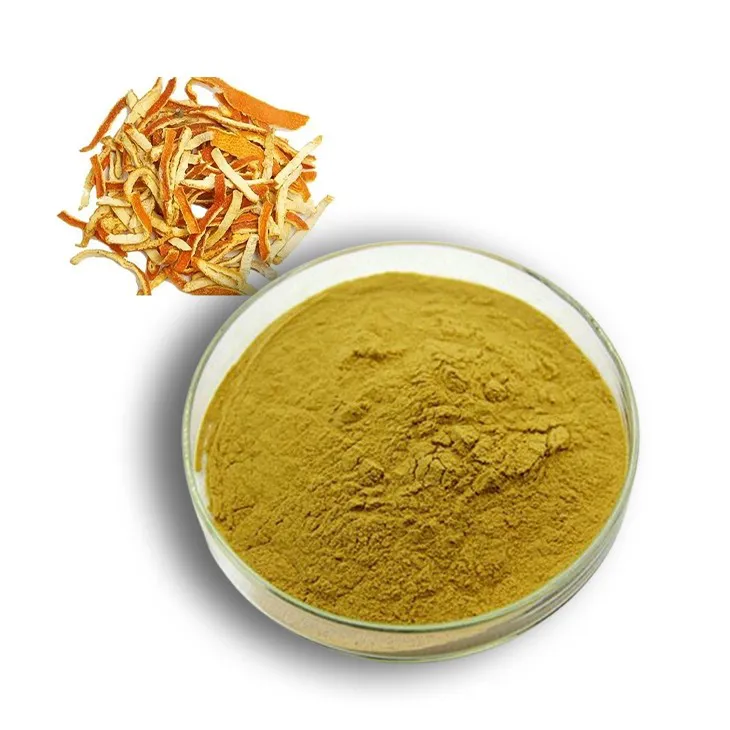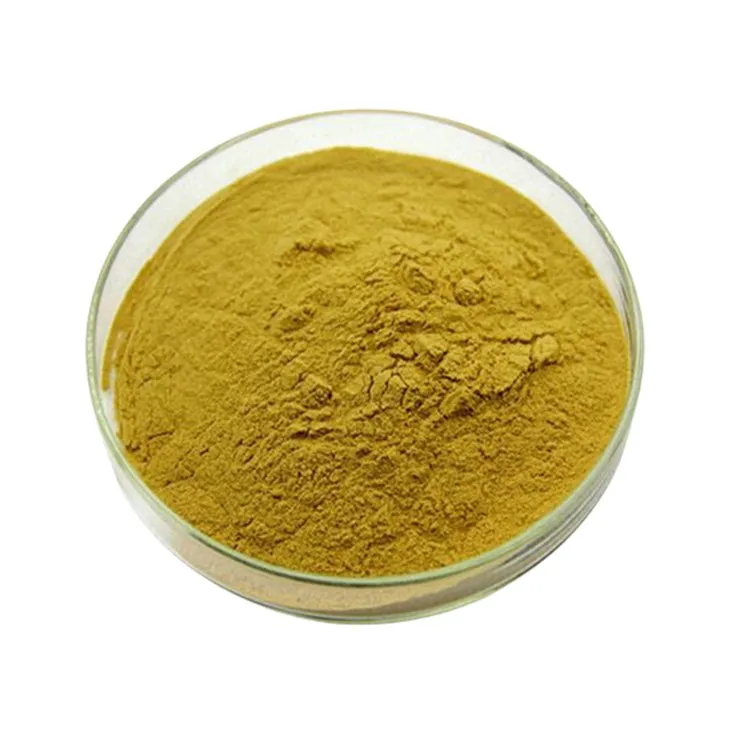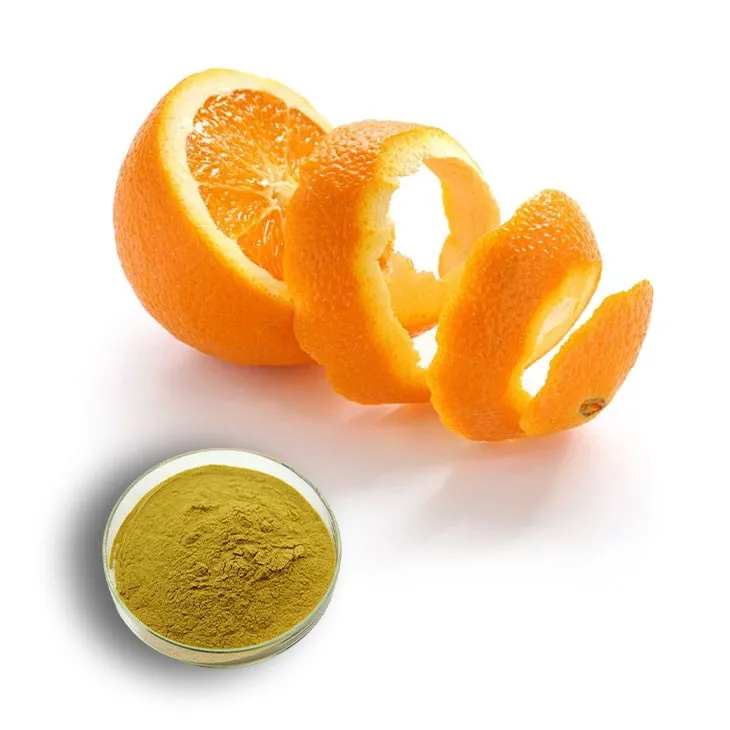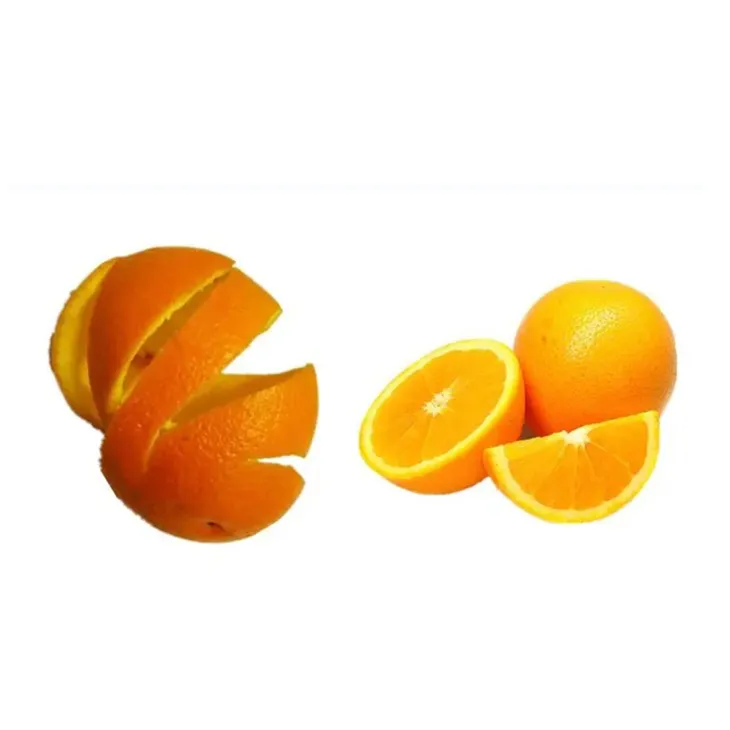- 0086-571-85302990
- sales@greenskybio.com
Mysteries of Hesperidin: Is It Vitamin P?
2025-05-18

The world of vitamins and nutrients is vast and sometimes confusing, with some compounds carrying multiple names or classifications. One such compound is Hesperidin, often associated with the term "Vitamin P." This article delves into what Hesperidin is, its origins, its potential classification as Vitamin P, and its health benefits and applications.
Understanding Hesperidin
Hesperidin is a bioflavonoid, a type of flavonoid primarily found in citrus fruits like oranges, lemons, and grapefruits. Flavonoids are a diverse group of plant compounds known for their antioxidant and anti-inflammatory properties. They play crucial roles in supporting human health by protecting cells from oxidative stress, reducing inflammation, and enhancing the immune response. Hesperidin is particularly noteworthy because of its potential health benefits, including vascular support, anti-inflammatory effects, and possibly even antiviral and anticancer properties. These diverse benefits make hesperidin an interesting compound in both nutrition and medicine.

The Origins of Vitamin P
The term "Vitamin P" was coined in the 1930s to describe a group of compounds, including flavonoids like hesperidin, that were observed to have health-promoting properties—particularly in capillary permeability and resistance. Originally, this designation was used to group compounds believed to have vitamin-like functions, although they are not vitamins in the classic sense. The "P" in Vitamin P stands for "permeability factor," referring to these compounds' ability to improve capillary strength and function. However, it is essential to note that the classification of hesperidin or other flavonoids as Vitamin P is largely historical and not recognized in modern nutritional science, where flavonoids are treated as separate entities from traditional vitamins.

Hesperidin's Role and Health Benefits
Vascular Health: One of the most significant benefits associated with hesperidin is its role in improving vascular health. It has been shown to enhance the integrity of blood vessels, reducing the risk of varicose veins and hemorrhoids. By strengthening capillaries and reducing permeability, hesperidin helps prevent swelling and fluid leakage into surrounding tissues, thus alleviating conditions like chronic venous insufficiency.
Anti-Inflammatory Properties: Hesperidin exerts anti-inflammatory effects by inhibiting the production of pro-inflammatory cytokines and modulating immune responses. This makes it potentially useful in managing conditions characterized by chronic inflammation, such as arthritis and certain cardiovascular diseases.
Antioxidant Activity: As a powerful antioxidant, hesperidin helps neutralize free radicals, protecting the body from oxidative stress and reducing the risk of chronic diseases, including heart disease and certain cancers. Its role in preventing lipid oxidation further supports cardiovascular health by maintaining healthy cholesterol levels.
Metabolic Health: Emerging research suggests that hesperidin may aid in improving metabolic health markers, including blood sugar regulation and lipid profiles. This could have implications for managing or preventing metabolic disorders like diabetes and metabolic syndrome.
Potential Antiviral Properties: Some studies have explored hesperidin's antiviral capabilities, particularly in inhibiting the replication of certain viruses. While promising, more research is needed to fully understand its potential and efficacy as an antiviral agent.

Hesperidin in Foods and Supplements
Consuming a diet rich in citrus fruits is the most natural way to increase hesperidin intake. By including whole fruits like oranges, lemons, and limes in your diet, you not only boost your hesperidin levels but also benefit from a range of other nutrients and fiber these fruits provide. For those seeking additional supplementation, hesperidin is available in dietary supplements, often combined with other bioflavonoids or vitamin C to enhance its efficacy. Supplementation might be particularly beneficial for individuals looking to address specific health concerns related to vascular health or inflammation.

Safety and Considerations
Hesperidin is generally considered safe when consumed in amounts typically found in foods or when taken in appropriate doses as a supplement. However, as with any supplement, it is essential to consult a healthcare provider before starting hesperidin, especially for individuals with underlying health conditions or those taking medications, as hesperidin may interact with certain drugs, particularly blood thinners.
Future Directions in Research
While hesperidin has shown promise in a variety of health applications, ongoing research aims to further elucidate its mechanisms of action and potential therapeutic uses. Areas of interest include its role in neurodegenerative diseases, more in-depth analyses of its cardio-protective effects, and its applicability in antiviral therapy. Additionally, there is growing interest in understanding how hesperidin interacts with other flavonoids and bioactive compounds, which could lead to the development of new, synergistic health supplements.
Conclusion
Though no longer classified under the outdated term "Vitamin P," hesperidin remains a bioactive compound of significant interest due to its myriad health benefits, particularly in vascular and metabolic health. Valued for its antioxidant, anti-inflammatory, and protective properties, hesperidin continues to inspire research and interest in the fields of nutrition and medicine. As science advances, the full scope of hesperidin's potential benefits may become even clearer, offering new opportunities for health optimization through both diet and supplementation.
- ▶ Hesperidin
- ▶ Citrus Bioflavonoids
- ▶ Plant Extract
- ▶ lycopene
- ▶ Diosmin
- ▶ Grape seed extract
- ▶ Sea buckthorn Juice Powder
- ▶ Fruit Juice Powder
- ▶ Hops Extract
- ▶ Artichoke Extract
- ▶ Mushroom extract
- ▶ Astaxanthin
- ▶ Green Tea Extract
- ▶ Curcumin
- ▶ Horse Chestnut Extract
- ▶ Other Product
- ▶ Boswellia Serrata Extract
- ▶ Resveratrol
- ▶ Marigold Extract
- ▶ Grape Leaf Extract
- ▶ New Product
- ▶ Aminolevulinic acid
- ▶ Cranberry Extract
- ▶ Red Yeast Rice
- ▶ Red Wine Extract
-
Artichoke Leaf Extract
2025-05-18
-
Baicalin
2025-05-18
-
Acai Berry Extract
2025-05-18
-
Konjac Powder
2025-05-18
-
Tormentil Extract
2025-05-18
-
Fenugreek Extract Powder
2025-05-18
-
Mulberry leaf Extract
2025-05-18
-
Clove Powder
2025-05-18
-
Red Date Extract
2025-05-18
-
Sophora Flavescens Root Extract
2025-05-18





















